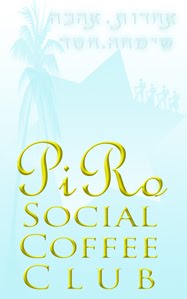I sit here, in the Land of Israel: Jerusalem; Home. It is night and the stars twinkle with fierceness and a multitude of heavenly lights such as I have not remembered for many years. Across the valley sleep the hills of Benjamin and the lights of Ramalla shine directly across from me as to the left I strain to see Nebi Samuel, the grave of the Prophet Samuel. The night is totally quiet, carrying with it a stillness not born of the fear of other urban areas where people cling to their dwellings in the concrete jungle, but rather the gentle, peaceful quiet that affords tranquility to the soul and pause for thought to the mind.
I am home in Jerusalem and inside sleep my children who have returned with me. Tomorrow they will go to school, climbing the hills that forever bear the footprints of those who preceded them here so many years ago–their ancestors. They will walk the hills of Jerusalem, tread its streets, mingle with their brothers and sisters from Riga and Casablanca, pray at the wall and shyly–and then not so timidly–touch its craggy surface, add their lip prints to those who preceded them for twenty centuries and then joke in Hebrew with the bus drivers, drink their Jewish grapefruit juice as they read their Jewish newspaper and exult in their Jewish city.
“Our feet are standing within thy gates O Jerusalem,” and they will never leave. This is Zionism, and the United Gentiles call it “Racist” and debate how to take my city away from me. Foolish world; sooner will the sun fail to rise tomorrow. The Jews have come home to their Zion and have welded their city together with a fierce tightness that none-least of all the humor that is the United Nations-can sunder. A people which patiently bides its time for millennia will not easily-ever-give up its state and capital. A nation stubborn enough to awaken for centuries at midnight to weep for Zion and so obstinate as to pray in the North, the South, East and West, three times daily, four times on Sabbaths and holidays and five times on Atonement for the day when the Divine Presence will return to the Holy City, will surely do little more than yawn when the haters thunder about “Zionist hooligans.”

My first Sabbath in Jerusalem was the occasion for the reading in the Law of the words of the Prophet Isaiah: “For the sake of Zion I will not be quiet and for the sake of Jerusalem I will not hold my peace.” Let the world hear and the politicians remember. A people whose G-d keeps His word is not to be trifled with; a L-rd whose people is so determined is not to be taken lightly. “Pray for the peace of Jerusalem,” for if an alien hand attempts to seize it again it will surely be cut off. Pray for the peace of Zion because if there will be war over it, the whole world will be plunged into a holocaust-and in the end it will remain Jewish. In blood and fire did Zion rise again-never again to sink to its knees. This is surely the promise we give the world, and the guarantors whom we bring as surety are the same ones our ancestors once brought before the Almighty at Sinai-our children. They walk the streets of Zion and their Jerusalem and with the strength of their young and mighty arms will they assure that those streets and stones and hills and homes will continue to be Jewish ever more.
A certain resolution on Zionism has been passed at the United Nations. In reality, it is a resolution on Judaism. It is important that a reply be given. It is important that the world know precisely what Zionism is and what the Jewish people are.
It is important that the nations hear our proclamation: “Listen world; I am a Zionist, I am a Jew!”
And listen, too, Jew. Listen so that you will understand yourself who you are and what and why. For there is no escape from it even if one should be so foolish as to desire to flee, the greatness and majesty of the Jewish destiny. Listen so that you will be able to stand proud and tall and know what to reply-with dignity and not hesitant defensiveness. So that you will know from where you came and to where you go, since without the former it is impossible to know the latter.
And so, listen Jew as we speak to a world that understands as little as you about the eternity of the Jewish people. Listen, as the Jewish Idea is proclaimed. Listen, and learn. Listen and return.
Listen world, listen Jews.


























